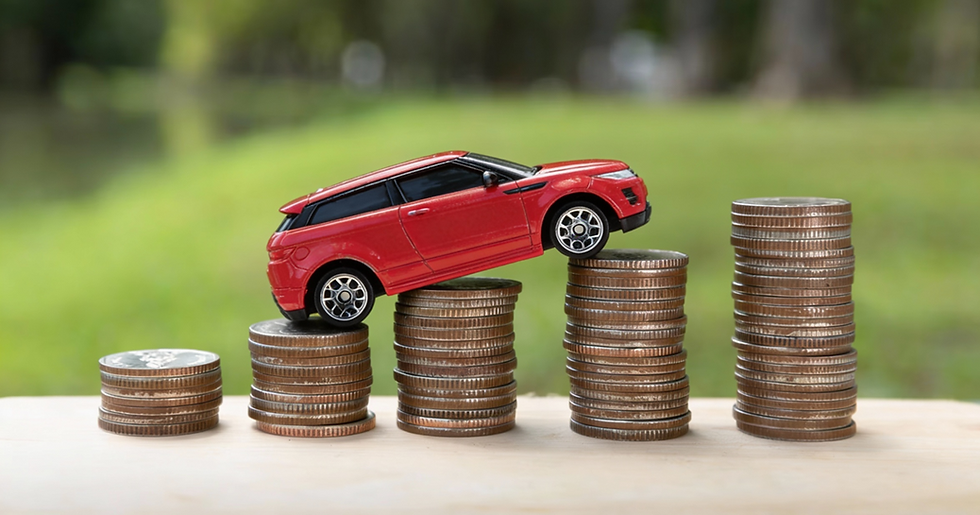Will 2025 Be a Good Year to Buy Cars?
- LeeAnn Shattuck

- Jan 7, 2025
- 3 min read
Updated: May 9, 2025

As we head into a new year, one of the most common questions I get is: Should I buy a car in 2025 or wait? It's a valid question, especially with all the noise circulating online about market crashes, crumbling inventory, and sky-high prices.
Let’s look beyond the clickbait and break down what’s really happening in the car market this year—and what it means if you’re planning to buy a new or used vehicle in 2025.
(Note: this article was published before the tariff nonsense started!)
What the Data Actually Says
Despite all the doom-and-gloom headlines, new car sales in the U.S. actually increased slightly in 2024. We're expecting the final sales figures to hit nearly 16 million units, the best year since 2019. Used car sales also rose, likely closing out at around 20 million units, up 3% from 2023.
So where's all this "market crash" talk coming from? Profits—specifically, the fact that they're dropping for both automakers and dealerships. While sales volume is up, profit per unit is down. The golden days of outrageous markups during the pandemic are over. The industry is correcting itself, not collapsing.
Why Prices Spiked—and Why They’re Softening
New car prices shot up by 30% during the pandemic. Yes, that’s more than general inflation. Why? Manufacturers prioritized building high-end trims and expensive models to maximize profits when production was limited. Now, with production back on track, they’ve oversaturated the market with pricey vehicles many buyers simply can’t afford.
Combine that with high insurance premiums, rising interest rates, and tighter lending standards from banks (due to increased repossessions), and you've got a recipe for declining affordability. Fortunately, interest rates are beginning to ease, and automakers are responding with incentives like low or even 0% APR financing.
Are Dealers Really Dumping Cars?
In some cases, yes. Certain makes and models just aren’t selling—think large SUVs, trucks, and overpriced trims. Dealers are turning down new allocations from manufacturers and slashing prices to move inventory and avoid high floor plan interest costs.
That means discounts are real, especially on specific trims and brands. Stellantis (Jeep, Ram, Dodge, Chrysler) is leading the discount charge, and Toyota’s struggling to move its full-size trucks. But don’t expect deals on hybrids or EVs that are in high demand—they’re selling just fine.
What About Used Cars?
Used car prices are continuing to drop but more gradually than last year. The Mannheim Index—the industry's benchmark for used car values—shows prices fell about 6% in 2024.
If you’re buying used, this is good news. But if you’re trading in, don’t expect a high offer unless your car is relatively new, has low mileage, and qualifies for certification. Certified Pre-Owned (CPO) cars are in short supply thanks to limited production during the pandemic, and franchise dealers are hungry for this kind of inventory.
Financing Outlook for 2025
Expect auto loan interest rates to continue dropping, especially from credit unions and captive finance companies. Leasing is also making a comeback as lower money factors improve affordability.
If you're planning a purchase, it pays to shop for financing. Credit unions like USAA and Navy Federal have already dropped their rates and are usually more flexible than traditional banks. Don’t rely solely on dealership financing—check all your options.
Strategy Tips for 2025 Buyers
Look for incentives: 0% APR and cash rebates will be common on slow-moving models.
Avoid dealer markups: Inventory is up, so there's no need to overpay.
Don’t expect deals on hybrids: Especially Toyota, Honda, and Lexus hybrids—they’re hot sellers.
Join a credit union: Lower rates, easier approvals.
Shop your trade-in: Get quotes from multiple franchise dealers if your vehicle qualifies as CPO.
Consider timing: Deals may be better in Q1 and Q2 before uncertainty around the next election starts impacting the market.
So… Is It a Good Time to Buy?
Overall, yes—if you’re financially ready. Affordability is still a hurdle, but it’s improving. Inventory is stabilizing, incentives are back, and interest rates are starting to cooperate.
Just don’t fall for the "market crash" hype. What we’re seeing is a long-overdue correction—not a disaster. Automakers are finally responding to buyer demand (and resistance), and there are real opportunities out there, especially if you’re flexible about what you want.
🎧 Want the full breakdown, complete with snark, data, and stories from the car buying trenches? Listen to The Straight Shift podcast episode that goes deeper into what 2025 holds for car buyers—and what you should really watch out for.
Whether you're ready to hit the dealership or just kicking tires for now, being informed is your best bargaining tool. And hey, if you want to become a total car-buying ninja, check out my online course: The No BS Guide to Buying a Car.




Comments